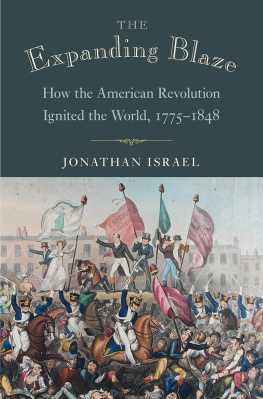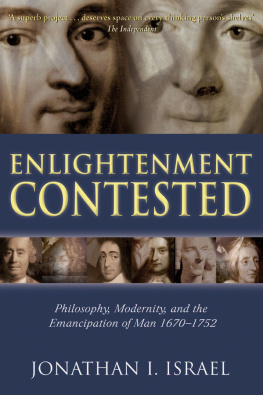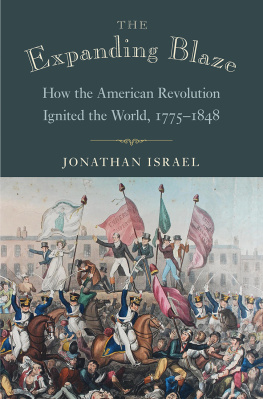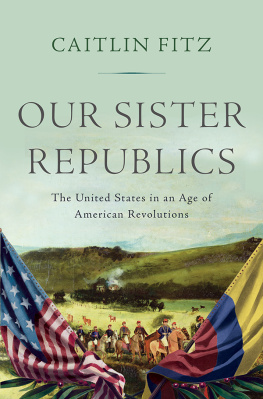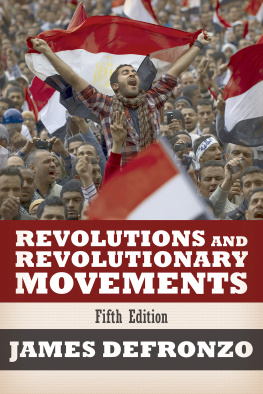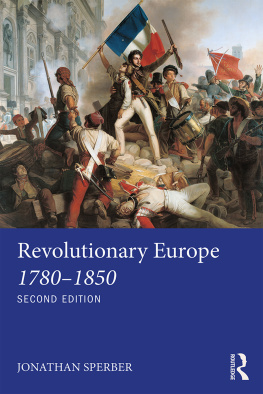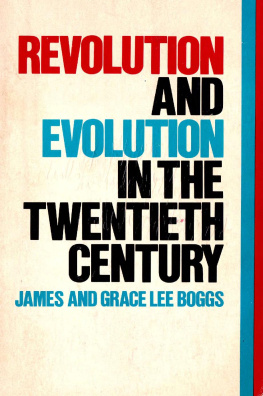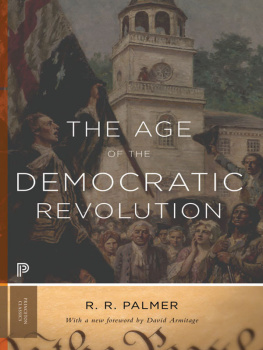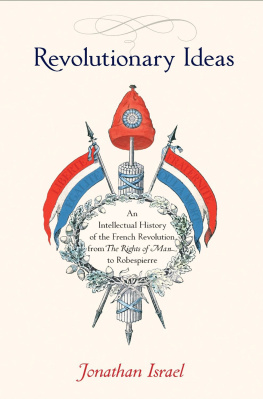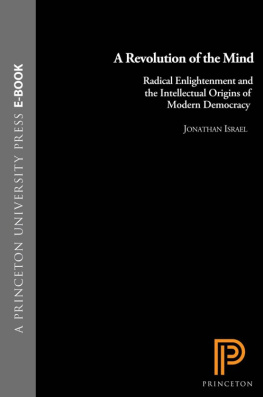
The Expanding Blaze
The Expanding Blaze

HOW THE AMERICAN REVOLUTION IGNITED THE WORLD, 17751848
Jonathan Israel
Princeton University Press
Princeton & Oxford
Copyright 2017 by Princeton University Press
Published by Princeton University Press, 41 William Street, Princeton, New Jersey 08540
In the United Kingdom: Princeton University Press, 6 Oxford Street, Woodstock, Oxfordshire OX20 1TR
press.princeton.edu
Jacket art courtesy of Manchester Libraries, Information and Archives, Manchester City Council
All Rights Reserved
ISBN 9780-691176604
British Library Cataloging-in-Publication Data is available
This book has been composed in Ehrhardt MT Std
Printed on acid-free paper.
Printed in the United States of America
10 9 8 7 6 5 4 3 2 1
From that bright spark which first illumed these lands,
See Europe kindling, as the blaze expands,
Each gloomy tyrant, sworn to chain the mind,
Presumes no more to trample on mankind:
Even potent Louis trembles on his throne,
The generous prince who made our cause his own,
Philip Freneau, On the Prospect of a Revolution in France (March 1790)
Contents

Illustrations

The Expanding Blaze
INTRODUCTION

The American Revolution and the Origins of Democratic Modernity
The Americans have taught us how to conquer liberty; it is from them also that we must learn the secret of how to conserve it.
Condorcet, Bibliothque de lHomme Public, series II (1791), 5:25051
The American Revolution (177483) ranks among the most written about episodes in history. It achieved independence and forged a great nation. But historians and readers have mostly approached it as an isolated American drama, the decisive formative episode in the history of the nation-state. That it also exerted an immense social, cultural, and ideological impact on the rest of the world that proved fundamental to the shaping of democratic modernity has since the mid-nineteenth century until very recently attracted little attention. The American Revolution, preceding the great French Revolution of 178999, was the first and one of the most momentous upheavals of a whole series of revolutionary events gripping the Atlantic world during the three-quarters of a century from 1775 to 184849. Like the French Revolution, these were all profoundly affected by, and impacted on, America in ways rarely examined and discussed in broad context.
The Thirteen Colonies seceded from Britains empire, at the time by land and sea economically, politically, and militarily the worlds most powerful entity, overthrowing the principle of monarchy in a vast territory where monarchy, long accepted, remained deeply rooted in culture and society. Challenging the three main pillars of Old World ancien rgime societymonarchy, aristocracy, and religious authoritythe Revolution altered, though not without extensive resistance, the character of religious authority and ecclesiastical involvement in politics, law, and institutions, and weakened, even if it did not overthrow, the principle of aristocracy. Its political and institutional innovations grounded a wholly new kind of republic embodying a diametrically opposed social vision built on shared liberty and equal civil rights. The Revolution commenced the demolition of the early modern hierarchical world of kings, aristocracy, serfdom, slavery, and mercantilist colonial empires, initiating its slow, complex refashioning into the basic format of modernity. The wide repercussions of this American drama, the Revolutions world impact, accounts for the books title, The Expanding Blaze, a phrase taken from Freneaus poem, and for its approachpresenting an overview of the revolutionary process in the Western and colonial worlds down to the 1850s viewed from the particular perspective of the American revolutionary example, experience, and ideas.
At the start of the American Revolution in 177475, hardly anyone intended to replace the highly elitist political systems in the Thirteen Colonies with more democratic and representative legislatures and constitutions, or make substantial alterations to the general frame of American culture and society. But amid the vast strain and effort involved, at a time when fundamentally new and disturbing ideas about politics, religion, and society radiated widely, it was inevitable that huge internal changes, intended and unintended, should ensue. The Revolution by no means ended the grip of the old elites on power or transformed the essentially hierarchical and deferential character of eighteenth-century American society, but it did exert an internationally democratizing and emancipating effect that provedas many renowned reformers, project-formers, and political visionaries, male and female, acknowledged at the timeof immense consequence for Americas future and the rest of the globe.
The Revolution affected and potentially, some thought and others feared, transformed all humanity, a few even claiming its external significance considerably outweighed the national. The independence of America would have added but little to her own happiness, and been of no benefit to the world, contended the American Revolutions most forceful and internationally widely read publicist, Tom Paine (17371809), in 1805, if her government had been formed on the corrupt models of the old world.and globally powerful aristocracy than Britain. Hence, radical detractors of mixed government expressly included England among the corrupt models presided over by kings, priests, and aristocrats. But only some Founding Fathers and parts of American society shared Paines democratic republican standpoint; most revolutionary leaders and their followers rejected it.
Jefferson, Franklin, and their admirers, if sometimes less stridently than Paine, Price, Priestley, Barlow, Palmer, Freneau, Coram, Allen, and other Anglo-American democrats of the time, urged an American Revolution devoted not just to national independence but a much more expansive and ambitious goal: fundamental political, social, and educational reform within the United States and beyond. No doubt few adhered consistently to their publicly proclaimed emancipatory ideals. Many tailored their idealism in one way or another, compromising with the old order, including, when it came to slavery, Americas foremost radical republican and declared opponent of aristocracy, Jefferson himself. Nevertheless, in principle these democratizing republican writers and orators all demanded an American Revolution that adopted the powerful new concept of universal and equal human rights, emancipated every oppressed and exploited group, established full freedom of religion, expression, and the press, and removed religious control over society and education.
With the conclusion of the American War of Independence in 1783, there was much to celebrate, not only in America and countries allied to the nascent United States during the warFrance, Spain, and the Dutch Republicbut, in the eyes of the progressive minded at least, also in Britain and beyond. In 1784, a year after the Peace of Versailles that set the seal on independence, the Welsh preacher and democrat Richard Price (172391), a leading political theorist of the age, delivered a stirring speech at an English banquet: With heart-felt satisfaction, I see the revolution in favour of universal liberty which has taken place in America;a revolution which opens a new prospect in human affairs, and begins a new era in the history of mankind;a revolution by which Britons themselves will be the greatest gainers, if wise enough to improve properly the check that has been given to the despotism of their ministers, and to catch the flame of virtuous liberty which has saved their American brethren.
Next page
